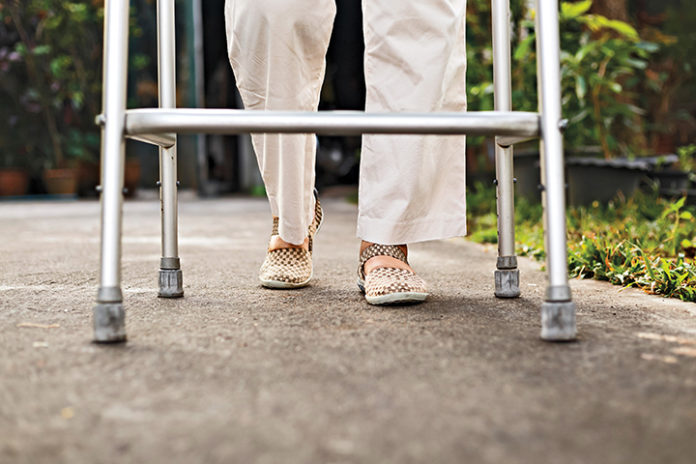My friend told me she received a free walker from the government for her parents. What does she mean? Dad may need a walker.
Signed, Prefer free
There has been a lot of development in mobility equipment and choices in vendors. One of the most upsetting things as a therapist is to see people purchasing equipment that is not right for them or for their situation. Considerations include the type of equipment and the environment where it will be used. Mobility aids come in many forms; from canes, crutches and wheeled walkers to manual and power wheelchairs and scooters. Finding the right one for your given situation is important. This is not always simple.
As to your question: There is indeed a government program called the “Assistive Devices Program.” The Ministry of Health and Long Term Care provides this service for people on long-term disability who will need a device for six months or longer. It is not meant to be used for someone who wants an assistive device for a trip, social outing or occasional use.
To apply, you must be a resident of Ontario with a valid health card number. You need to be assessed by a physiotherapist or occupational therapist who is registered as an “authorizer.” The funding is based on the rules laid out in the government plan. You and your device will be measured, options suggested and uses of recommended devices explained.
The usual process is to have a therapist assess you, complete the application and then submit on your behalf.
The program pays 75 percent of an approved price. You/your parent, pay 25 per cent. The remaining 25 per cent can sometimes be covered by third parties like March of Dimes, DVA or an insurance company (a medical prescription is usually required for the latter), but usually an individual pays. The client is the one who chooses the authorizer and vendor in their own community and these individuals often work both in the private and public sector. Those working in the private sector charge a fee for the assessment. Similar to when you buy a car, you’ll want all the specifications and information about your device prior to purchase.
You are encouraged to choose a vendor and shop around. Services may vary and, like any other business, it is key to have a setup that works for you. Ask around. Does the vendor have a good service record? Do they return repairs quickly or loan you a replacement? How long have they been in the business? If you disagree with the assessment provided by a therapist, you have the right to a second opinion.
The wheelchair category covers a variety of types and seating systems and the only way to choose correctly is by making an informed decision. Alanna Weill, OT and private authorizer, states: “The appropriate mobility device should meet the client’s specific needs, be comfortable and assist with maximizing his/her safety and function, independence and overall quality of life.”
There are now many amazing options and types of assistive devices spanning all categories, so take your time before and do your due diligence before choosing.
The equipment, once received, is yours to deal with, care for and be responsible for. You can get reassessed for a new device if your condition has changed; which can happen with certain neurological conditions (i.e. Parkinson’s and MS).
We are lucky to have this financial program, but make sure you use it wisely for everyone’s sake!
Nira Rittenberg is an occupational therapist who specializes in geriatrics and dementia care at Baycrest Health Sciences Centre and in private practice. She is co-author of Dementia A Caregiver’s Guide available at www.baycrest.org/dacg Email questions to caregivingwithnira@baycrest.org
This column first appeared in the Toronto Star on Jan. 30, 2017.


